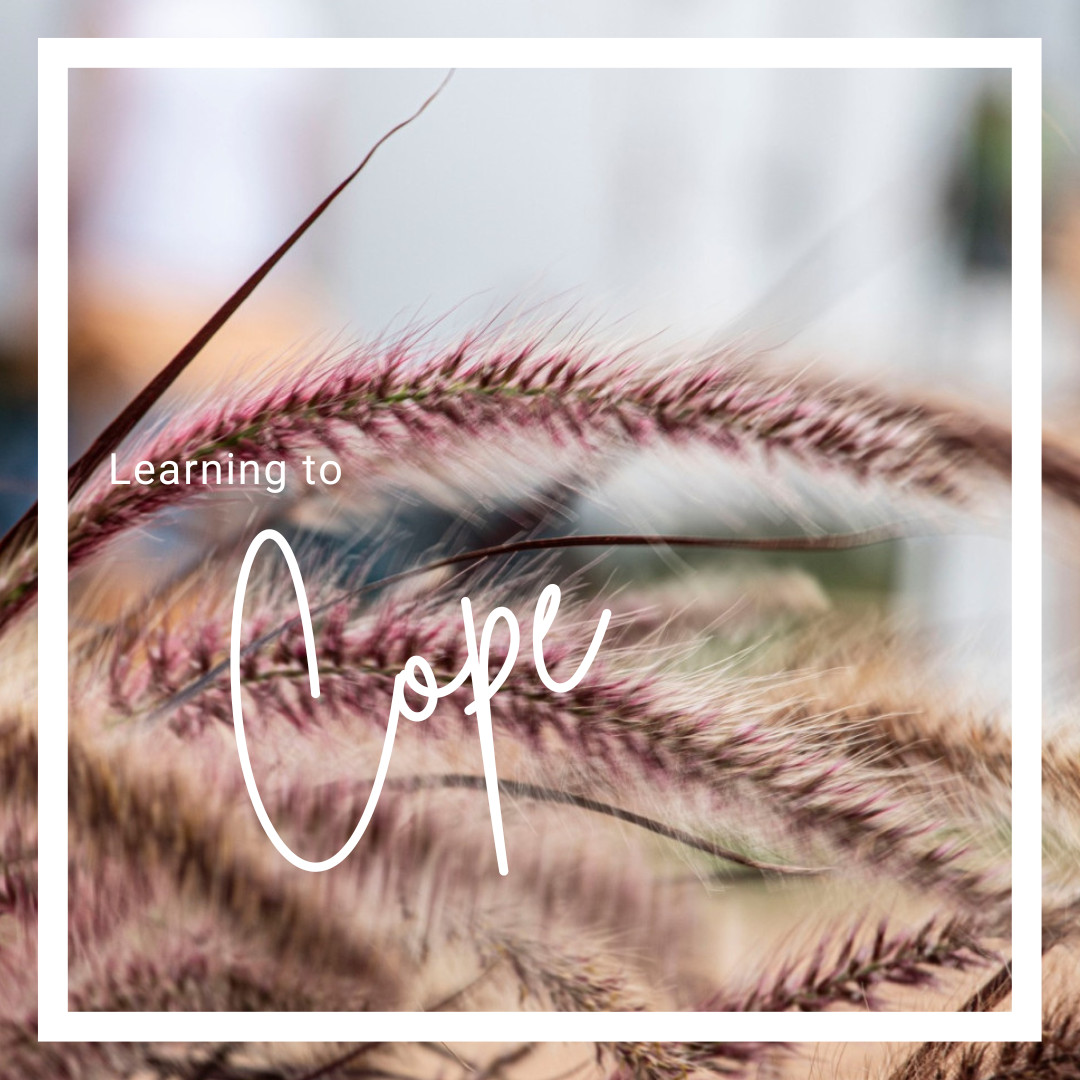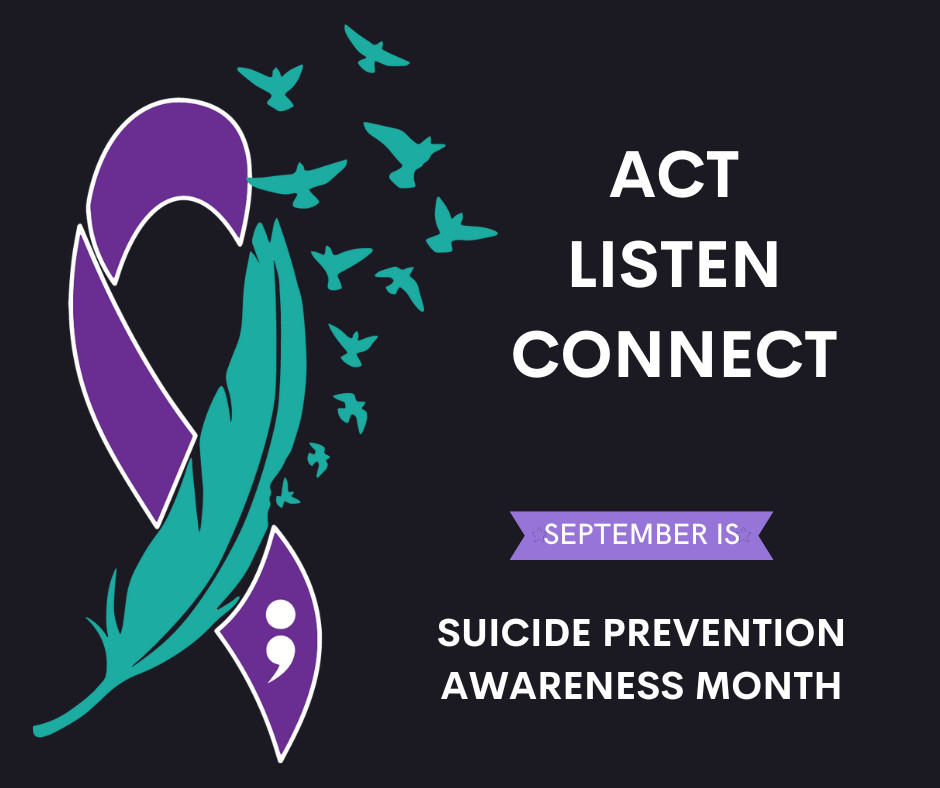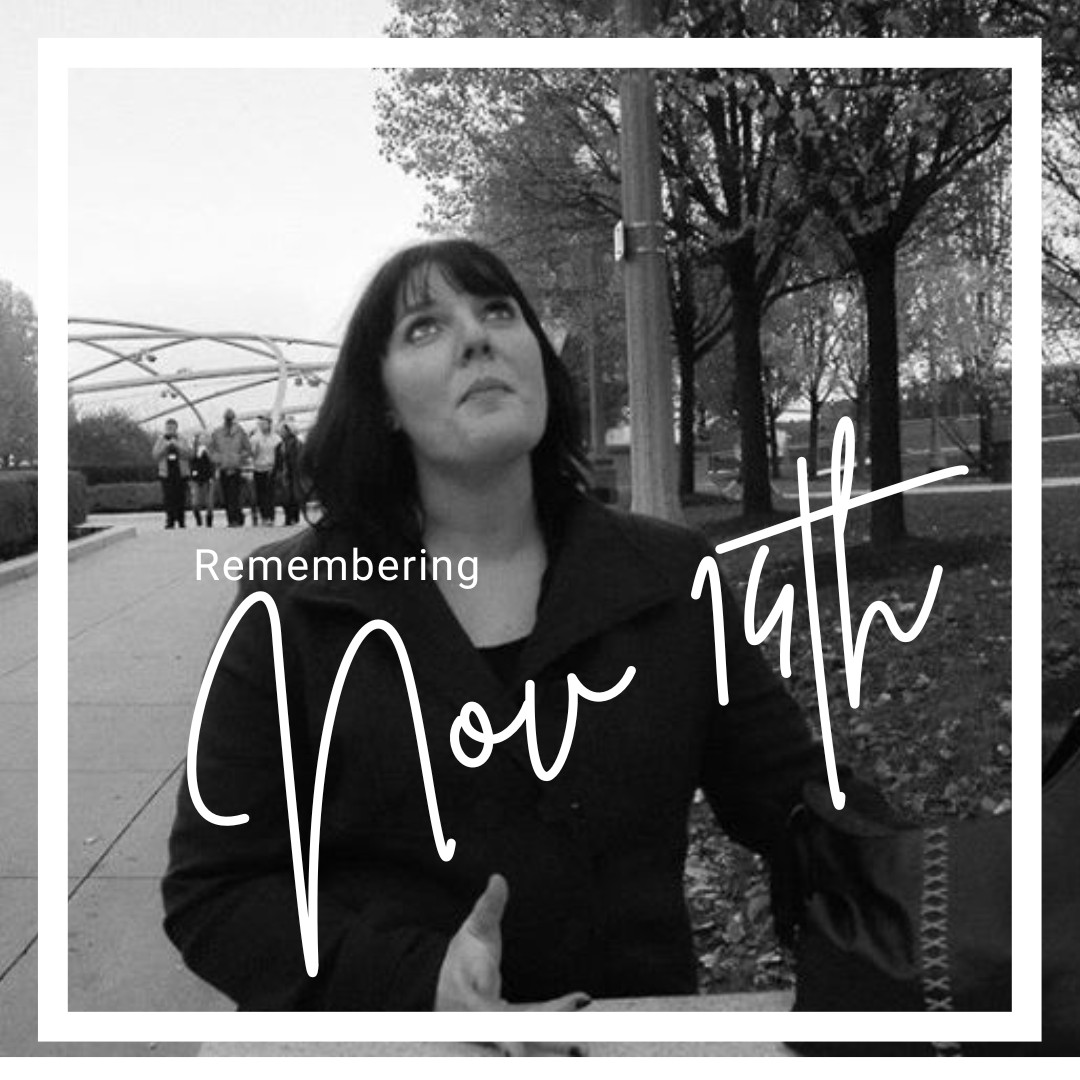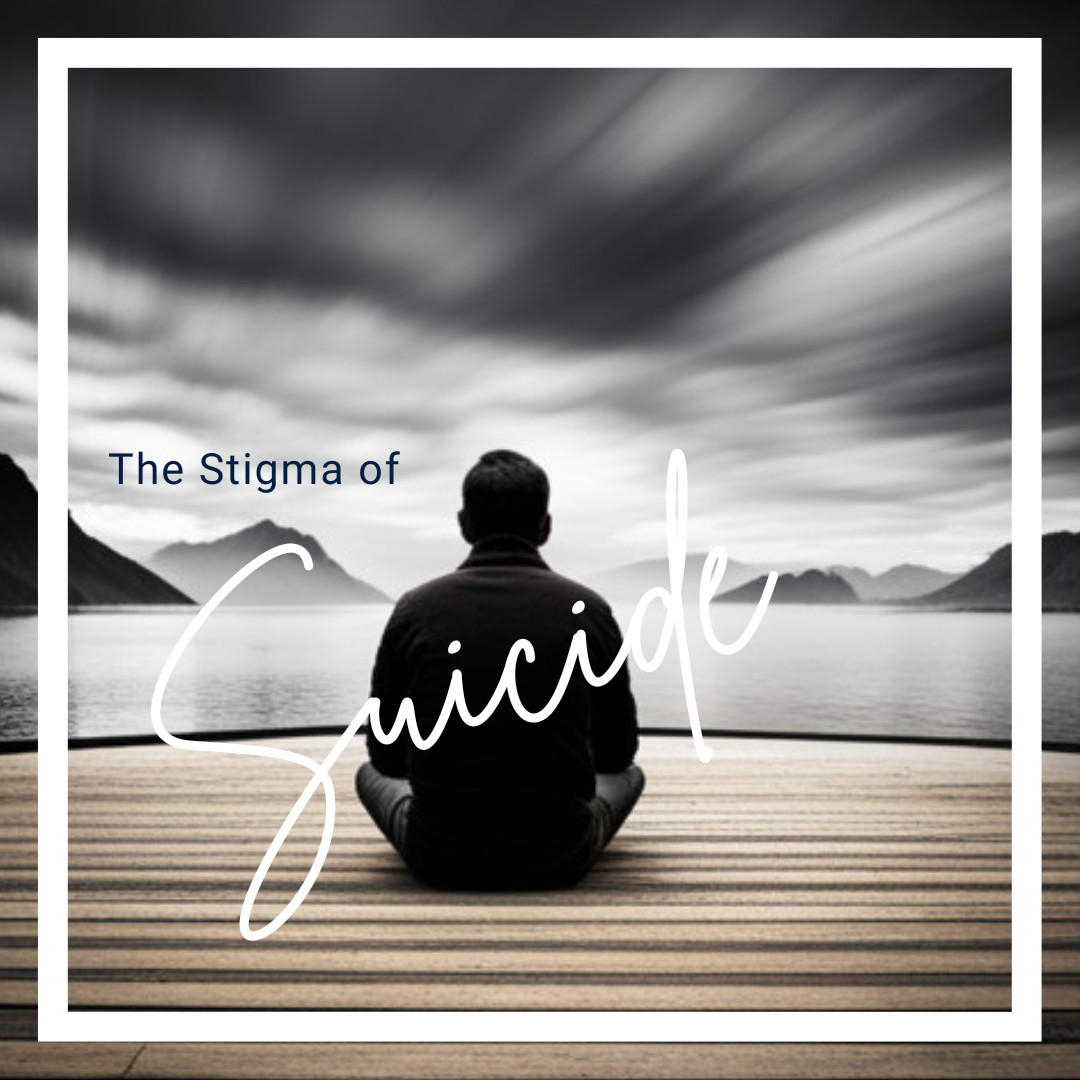
Grief is one of the most complex emotional experiences any person can undergo. It is especially true when someone loses a child to suicide. The death of a child not only shatters a parent's world but torments their souls as if it were a never-ending battle. Your soul is entwined with your child. You made them. It is not something you will ever “get over”. Yet, one of the most infuriating things that people tell parents is to "get over it." It’s a statement that only deepens the pain, and it's something I, a fellow suicide loss survivor, have heard too often.
Express Your Emotions
We learn early in life that expressing emotions is a sign of weakness. However, nothing can be further from the truth. From the moment you experience the loss of a child, there is a constant battle between your emotions and your intellect. Nobody forces you to follow set timelines, grieve a certain way, or stay strong. Each day is a new experience, a new emotion. So, let it all out. Cry when you need to. Laugh when you feel like it. Punch a pillow if it helps. Cry with those who will cry with you, and don’t be ashamed to show your emotions. With time, the intensity of your feelings will ease.
Try not to Isolate (this one is hard!)
Friends and family may try to help, but they may not know how to provide support. Don’t isolate yourself — it's a recipe for disaster. Try to find support groups of people who have experienced the same loss as you. In such groups, you’re free to talk about your feelings, and you can benefit from the support and advice of others who have walked the same path. These groups can help you move forward by showing you different ways that you can channel your pain and thoughts for the better.
Create a New Beginning
Suicide may have ended your child's life, but you're still here! Why? To tell there story. There’s no right or wrong way to cope with loss and grief. You may find that throwing yourself into an activity — reading, gardening, crafting, or even baking — helps you pass the time and allows you to create something new. Try to find something that you love and use it to form a new beginning while dealing with your grief. You may also find that volunteering at a charity can be therapeutic and can help others in similar circumstances. It is the perfect way to channel your emotions and potentially making a connection to other positive people.
Honor Your Baby
Keep them alive by picking up their torch. Did they have a favorite hobby? How about a cause that was important to them. You can do work supporting that in their name. Visit places they loved and do things they loved to do and most importantly. Speak of them. Often and with love. Say. Their. Name. Creating memorials for a loved one can sometimes feel painful, but at the same time, it provides an avenue to keep your loved one's memory alive. You can do this in several ways. For instance, you can create a scrapbook of all the good memories you had with your child, or you can design a memorial wall that allows you to display pictures and your child's great qualities. You may also want to keep a written diary that you keep privately and use as an outlet for your emotions, thoughts, and feelings. These are excellent ways to keep your child's memory alive and cherished.
Losing a child to suicide is a wound that never heals, and getting over it is not an option. This is a long and personal journey with no right nor wrong way to cope. So, to those parents out there that have heard, "get over it,” I hope this guide has provided some helpful advice. Please express your emotions, don’t isolate yourself, create a new beginning, and create a memorial for your loved one. I'm not here to offer a panacea or easy fixes, just a helpful hand for those on this difficult path. Keep moving forward with the love of your cherished child always in your heart.
Remember, it's not how they died that is important. It's how they lived that they will be remembered for. Keep them alive.
You are powerful. You are loved. You are blessed.
Sending Love, Hugs and Healing Light
~BriannesMom f31 2014

For you, as a suicide loss survivor, the path to healing is a profound and enduring journey. but it becomes even tougher when you face the world, and you are told things like, "Just get over it" and "It was their choice." Comments like these are not only dismissive of the your pain and trauma, but it also reflects a fundamental misunderstanding of suicide loss.
The Difficulty of Processing Trauma
First, know that when you are told to “just get over it,” by well meaning friends and family, that is their lack of understanding or compassion. There is nothing wrong with you or the way you are grieving. Losing a child to suicide is undeniably traumatizing. The truth is, this trauma has a way of clinging to a person, especially when it is so intense and unexpected. You are often left to cope and process this pain alone. It takes time, counseling, and other forms of support for the survivor to make sense of this loss.
The Complexity of Suicide Loss
Suicide grief carries a level of complexity, which is different from grief over a natural death. In a natural death, people usually end up in a place of acceptance. Suicide grieving, however, is often met with confusion, anger, and guilt on top of raw grief. You will eventually understand that surviving their child isn’t the same thing as understanding why they died. To “just get over it” is to undermine the depth and complexity of your experience.
The Powerful Impact of Stigma:
Society stigmatizes death by suicide. Suicide often carries an unspoken shame, which is may be often internalized instead of letting it out. Many survivors report chronic self-blame and guilt, which only serves to prop up the stigma associated with suicide. This stigma can be reinforced by well-meaning people who tell you that your child “chose” suicide, and there was nothing that could be done. “Just getting over” suicide loss the same way as a natural death doesn’t account for the additional layers that this stigma brings.
Set Boundaries
What you as a suicide loss survivor needs compassionate understanding and a lot of support during those tough, tough times when you are in that dark place. It’s important for the you to feel validated in your pain, and for your grief to be seen as a legitimate experience. Set boundaries. This is your grief. You set the way you will navigate it.Instead of trying to deal with well meaning people who don't know what to say. Tell them what you need. Ask for help to develop some new coping skills to deal with all these new feelings. Ask for empathy. Ask for grace while you actively deal with your pain and work on healing. It’s all about being there and offering support no matter what.
The Art of Gradual Recovery
Grieving the loss of a child to suicide is something that will be there forever. Their is no "getting over it” because the healing process isn’t linear. Growth does happen, triggers lessen, and you will achieve a new normal, but grief will always be there. You will learn to live within it. That’s why professional help, support tools, and activities like meditation and self-care are useful. They help to soothe the grieving body and offer a sense of relief.
As a suicide loss survivor, I know the experience is complex, traumatizing, and filled with many layers of stigma. To dismiss our pain and trauma hinders our healing process. We need all the support We can get. Suicide loss is a tough and lengthy road to travel, but not impossible to navigate with the right resources and support from loved ones. Remember to be compassionate and understanding as we walk with our friends and loved ones through the overwhelming sadness and grief that come with suicide loss.
You are powerful. You are loved. You are blessed.
Sending Love, Hugs and Healing Light
~BriannesMom f31 2014

In recognition of National Suicide Awareness Month, it is crucial to remove the taboo surrounding suicide and have an open conversation about mental health. Suicide has a ripple effect, impacting not only the individual but also everyone who knew them. By recognizing the signs of depression and offering support, we can work towards prevention and provide a safe space for those struggling.
Addressing the stigma surrounding mental health is also important. Openly discussing mental health can help remove the barriers preventing individuals from seeking professional help when needed. It is essential to understand that mental health is just as important as physical health. Educating ourselves on available community resources, such as crisis hotlines and support groups, is crucial.
Additionally, it is vital to provide support and guidance to teenagers and young adults, as they are at higher risk for depression and suicidal ideation. Parents and educators should engage in honest discussions about mental health and be equipped to recognize the signs of depression. September is a reminder that mental health should be given equal importance as physical health.
If you or someone you know is struggling, remember that help is available. Reach out to crisis hotlines or visit resources such as 988lifeline.org for immediate support. Let's break the taboo and have an open conversation about mental health, because it's okay not to be okay, and support is always there.
Read more...








